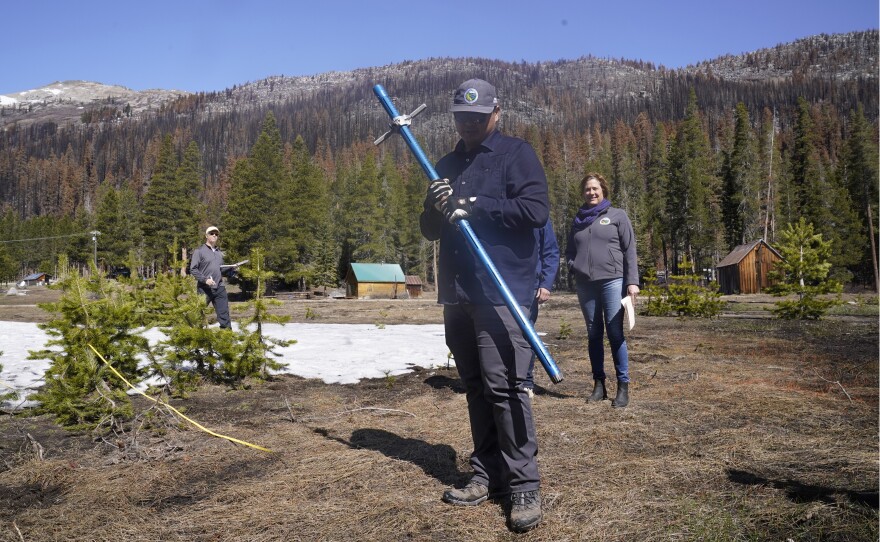This year’s Sierra Nevada snowpack is just 39% of average. But it’s now more than the amount of snow and rainfall that determines California’s water supply.
Scientists say climate change has created a cycle of drought that is increasingly hard to reverse, and new models are needed to be able to fully meet the West's water management needs.
"One of the issues that we're always concerned about with these types of extended droughts or particularly warm periods is that the soil itself will dry out and almost lose its ability to retain water," said Dr. Andrew Schwartz, lead Scientist and station manager at the Central Sierra Snow Laboratory at UC Berkeley. "Or in another case, depending on your soil type, can actually pull up so much of the water from any new rainfall that it doesn't make it into streams and then our reservoirs. And so as a result, the drought is kind of, in a way, self-perpetuating,"
Schwartz joined Midday Edition Thursday to discuss his recent opinion essay in The New York Times on what most worries him about the ongoing California drought.
He noted that San Diego may be better prepared than other parts of California because of its practices of using reclaimed and recycled water, and desalination.
But Schwartz urged action to develop a more centralized strategy for water management.
"What we need from policymakers is to really develop as cohesive and comprehensive of an overview of all our water management in the West and then try for large-scale coordination and collaboration," he said. "Because individual entities working apart from each other, it's just going to create more problems than it solves."









